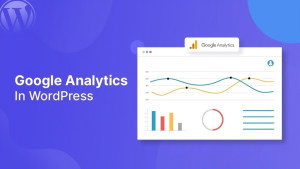In today’s fast-paced digital world, businesses must be smart and adaptable to survive. Gone are the days when merely existing online would suffice; now, success hinges on how efficiently you leverage marketing strategies to scale your brand. Smart marketing is about doing more with less, ensuring that every dollar, minute, and click counts toward your business growth. Let’s break down how you can elevate your business by using smart marketing techniques.
1. Know Your Audience Like Never Before
The foundation of any successful marketing strategy lies in understanding your target audience. Instead of casting a wide net, get laser-focused on the demographics, interests, and behaviors of your ideal customer. Smart marketing relies on data-driven insights. Use tools like Google Analytics, Facebook Audience Insights, and CRM data to gather intel about your audience’s preferences, pain points, and buying behaviors.
Pro Tip: Build customer personas to keep your marketing strategies aligned with real consumer desires and pain points.
2. Leverage the Power of Automation
Automation is the backbone of smart marketing. Why manually send emails, post content, or analyze data when tools can do it for you? Marketing automation platforms such as HubSpot, Mailchimp, and Hootsuite allow you to streamline repetitive tasks, freeing up your time for creative work.
From email marketing campaigns to social media posting schedules, automation ensures you’re consistently reaching your audience without having to micromanage every step. It also helps in tracking and optimizing campaigns in real time, ensuring your marketing dollars are spent wisely.
Pro Tip: Set up automated workflows for lead nurturing and customer retention. Once a prospect shows interest, your system can guide them toward conversion without manual follow-ups.
3. Content That Converts
Smart marketing is not just about creating content; it’s about creating valuable content that converts. To engage your audience, focus on developing content that addresses their needs, solves problems, or adds value. Whether it’s blogs, videos, infographics, or podcasts, ensure that every piece of content you produce aligns with your audience’s journey—from awareness to conversion.
Additionally, incorporate SEO strategies to make your content discoverable. Optimizing for search engines not only boosts visibility but also drives organic traffic to your site, helping your business grow without hefty ad spends.
Pro Tip: Use storytelling techniques to build emotional connections with your audience. People remember stories, not ads.
4. Utilize Data-Driven Decision Making
One of the cornerstones of smart marketing is leveraging data for decision-making. Instead of relying on guesswork, you can track performance metrics and customer interactions to refine your strategies. By analyzing KPIs such as conversion rates, customer acquisition costs, and engagement levels, you can tweak campaigns for better performance and higher ROI.
Pro Tip: Use A/B testing to experiment with different marketing approaches. Test variations of emails, landing pages, or social media ads to see what works best for your audience.
5. Maximize Social Media ROI
Social media is an incredibly cost-effective tool for growing your business—if used strategically. A smart marketing approach involves targeting the right platforms and engaging with your audience through meaningful interactions. Rather than trying to be everywhere, focus on the platforms where your audience spends the most time.
Craft tailored content that speaks directly to each platform’s unique audience, and leverage paid social media ads to reach a broader audience quickly. The key is not just to post content but to spark conversations, build relationships, and foster loyalty.
Pro Tip: Use retargeting ads on social media to bring back website visitors who didn’t convert on their first visit. These ads are highly effective in converting warm leads into paying customers.
6. Collaborate with Influencers and Brand Ambassadors
In the era of influencer marketing, collaborating with industry influencers or brand ambassadors can exponentially boost your reach. These individuals already have a trusted following, and their endorsement can lend credibility to your brand. Smart marketing involves selecting influencers who align with your brand values and appeal to your target audience.
Pro Tip: Consider micro-influencers if your budget is tight. They often have a smaller, but more engaged, audience, which can lead to higher conversion rates.
7. Harness the Power of Email Marketing
Despite the rise of social media and instant messaging, email remains one of the most effective ways to communicate with your audience. A smart email marketing strategy goes beyond blasting generic messages. Segment your email list based on customer behavior, demographics, or past purchases, and craft personalized emails that speak directly to the needs of each group.
Whether it’s a welcome series, cart abandonment reminders, or personalized product recommendations, well-timed and relevant emails can significantly boost your sales and customer retention rates.
Pro Tip: Use dynamic content and personalization to make each email feel tailor-made for the recipient, increasing engagement and conversion rates.
8. Optimize for Mobile
More people are browsing, shopping, and consuming content on mobile devices than ever before. If your website and marketing content are not optimized for mobile, you’re leaving money on the table. Make sure your site is responsive, fast, and easy to navigate on mobile devices. The same applies to your emails and ads—everything should look great on a smartphone.
Pro Tip: Use AMP (Accelerated Mobile Pages) for faster mobile loading and improve the user experience to reduce bounce rates.
9. Measure, Tweak, Repeat
Smart marketing is a continuous cycle of testing, analyzing, and refining. Marketing strategies are never set in stone; they evolve based on what works and what doesn’t. Constantly monitor your campaigns and tweak your efforts to maximize performance. Use tools like Google Analytics, social media insights, and email marketing reports to get a comprehensive view of your performance.
Pro Tip: Set clear goals and key performance indicators (KPIs) for each campaign. Regularly check these metrics to ensure you’re on track.
Conclusion: Adapt, Evolve, Thrive
In today’s competitive business landscape, smart marketing is no longer optional—it’s essential. By leveraging data, automation, personalization, and a deep understanding of your audience, you can build a marketing strategy that drives sustainable growth for your business. Stay agile, keep learning, and remember: smart marketing is about working smarter, not harder.




